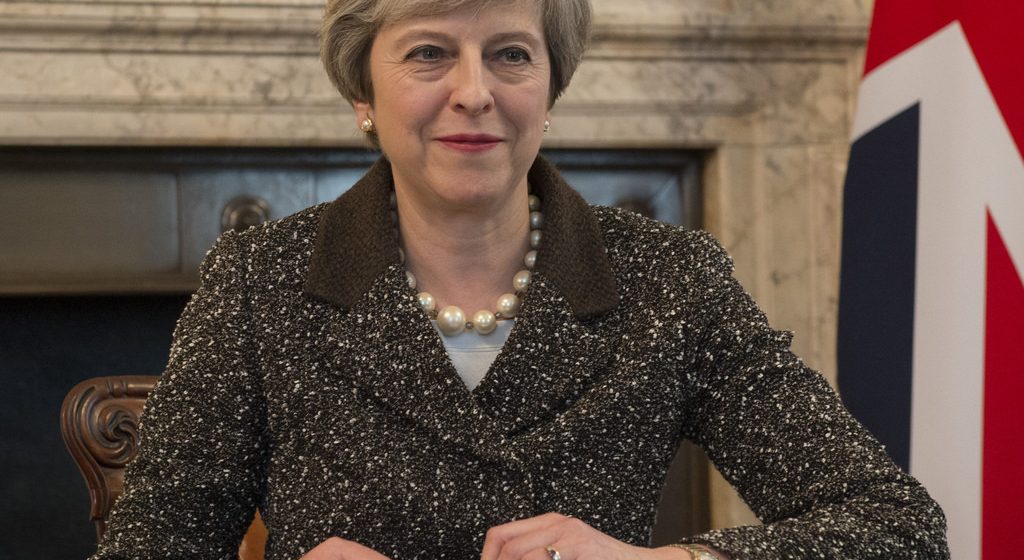On April 19, 2017, parliament voted to endorse the government’s motion to hold a UK general election on 8 June 2017. This was the first time that the provisions of the Fixed-term Parliaments Act (FTPA) were invoked. When the Act was introduced in 2011, the coalition government justified it by arguing that “fixed-term parliaments will have a positive impact on our country’s political system; providing stability, discouraging short-termism, and preventing the manipulation of election dates for political advantage.” Yet, the ease with which Prime Minister Theresa May was able to trigger the early election in light of her 21 point opinion poll lead over Labour over the Easter weekend appeared to cast doubt on its ability to deliver these aims.
As a result, many have echoed the view of the Conservative MP Jacob Rees-Mogg that the “Act can never work.” Others disagree. To Conservative MP Peter Bone, for instance, the election call epitomised the Act’s success. As he argued in the debate which preceded the parliamentary vote to call the election, “this is a good day for Parliament. This is another slight step towards parliamentary democracy and away from diktat by the Executive. The Prime Minister has not called a general election; it is this House that will decide whether there will be a general election.” How plausible are these competing views?
Why was the Act adopted?
The Fixed-term Parliaments Act (FTPA) was introduced by the Conservative-Liberal coalition government in 2011, primarily to prevent David Cameron, the prime minister at the time, from seizing on the first significant poll lead for the Conservatives to call an early election and win a Conservative majority. Previously, the prime minister had full discretion to ask the Monarch for an early election. The FPTA removed that prerogative power and instead placed the authority to call early elections in the hands of parliament. This is why the parliamentary vote on April 19 was necessary to dissolve parliament. Previously, no such vote was required.
In what sense does the Act fix the parliamentary term?
The Act does not fix the parliamentary term, and the debate about is in part fuelled by the fact that the Act’s title is a misnomer. Under the Act, early elections can be triggered in two ways:
- If parliament votes for an early election by a two-thirds majority of all MPs (434). This is the route that Theresa May has taken.
- If parliament passes a no-confidence vote in the government with a simple majority and then fails to express confidence in a government within 14 days.
The FTPA is therefore best understood as an Act that restricts the prime minister’s discretion to call early elections, not as an Act that fixes the parliamentary term. In evaluating whether or not it is effective, it is helpful to understand how and why most parliamentary democracies restrict their prime ministers’ discretion to call early elections.
How common are such restrictions?
As research that I have done with Max Goplerud shows, restrictions on prime ministerial discretion to trigger early elections are the norm in the OECD and the EU. Our analysis of 39 parliamentary democracies shows that most circumscribe the prime minister’s discretion to dissolve parliament. Typically, the prime minister cannot decide to call an early election alone. Rather, multiple political actors, such as parliament, the cabinet, and the presidential head of state are involved at different stages in the process that leads to an early election. Often parliamentary dissolution is not allowed for a specific time period (typically 6 months or a year) before or after parliamentary or presidential elections. Moreover many constitutions allow parliamentary dissolution only in specified circumstances, such as when parliament cannot form a government, when it fails to pass the budget, or when it has repeatedly voted no confidence in the government within a specific period of time.
Why do constitutions restrict the PM’s discretion to call elections?
Parliamentary constitutions generally allow early elections so that intractable conflicts and gridlock can be resolved by turning the decision over to the electorate. However, most restrict the Prime Minister (PM)’s discretion to dissolve parliament because it generates significant incumbency advantages. Research that I have done with Margit Tavits shows that PMs who can time elections for partisan advantage realise a vote share bonus of 5% on average. The reason for this is that PMs do not use parliamentary dissolution impartially. Rather, they call elections at the most advantageous time for them, when they expect to win, for instance, because the opposition is particularly weak, or because economic conditions are favourable. This use of parliamentary dissolution for the advantage of the PM’s party can have normatively undesirable consequences: PMs who are confident that they will perform competently and strongly until the end of their statutory term have no need to dissolve parliament. PMs who resort to early elections are those who anticipate a future downturn in their performance, which puts their popularity at risk. An early dissolution enables them to prevent voters from observing the decline in government performance, which can help a government that is less competent than it appears to hang on to power.
Is the FTPA ineffective?
The ease with which Prime Minister Theresa May was able to trigger the June 8 snap election despite the FTPA has led some to conclude that the Act is ineffective. Clearly, it did not prevent Ms May from scheduling an election for partisan advantage: The PM probably calculated that the opportunity cannot get any better. Unemployment is at an 11 year low. Growth, though weak, has been better than official forecasts since the Brexit referendum, and Labour’s popularity is at a historic low, lagging behind the Conservatives by around 20 percentage points.
Recall, however, that the PM was only able to secure this early election because Labour endorsed it in parliament. The Act could have led to a different outcome. A more confident Labour party might have decided not to support the PM’s election call. Many within Labour argued that the party should abstain. The Scottish National Party did precisely that, which highlights that opposition parties do not inevitably endorse the incumbent’s early election call. There is leeway to frame such choices. Reasons to question the need for an early election were plentiful. Most obviously, the PM faced no major obstacles to justify this election – recall, that parliament had just endorsed the triggering of Article 50 with an overwhelming majority.
An abstention by Labour would have prevented the PM from reaching a majority of two-thirds of all MPs, forcing her into the awkward position of taking the second path to an early election envisaged by the Act – a parliamentary vote of no confidence in her government. This would have required her to instruct her own MPs to vote against her government, highlighting the strategic nature of the election call to voters.
More generally, the FTPA creates the opportunity for parliamentary opposition parties to check the PM. Opposition parties may or may not use this opportunity. But with a more confident Labour party or a different parliamentary arithmetic the Act can be a significant constraint on the PM.




